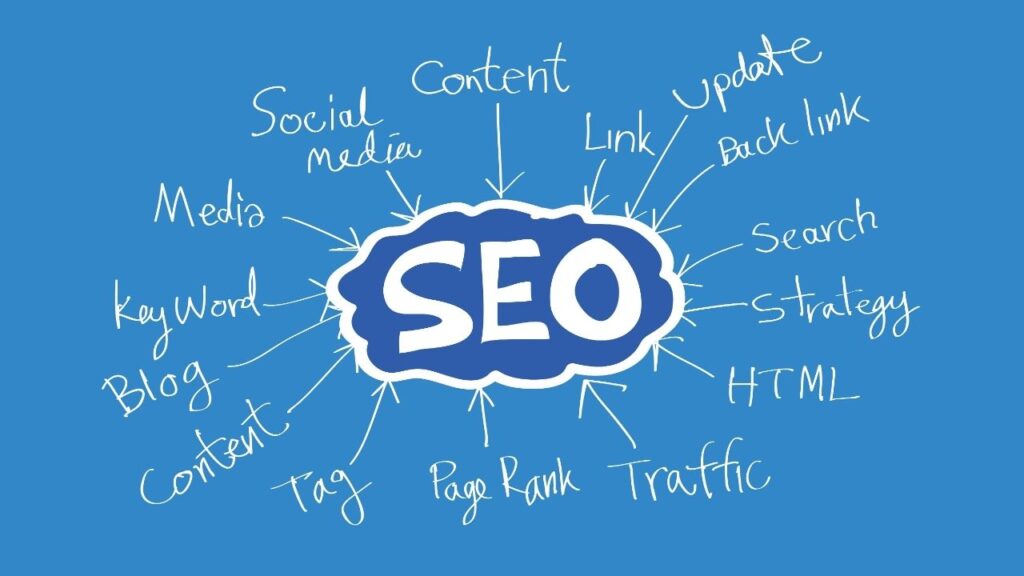
We all have been hearing the name of SEO from some or the other for a long time, but do you know what SEO is or how it reduces, so come today let us try to go through the history of SEO
- What is SEO?
- Who discovered SEO?
- How dose work SEO?
- What is the benefits of SEO?
WHAT IS SEO?

SEO stands for Search Engine Optimization. It refers to the practice of optimizing websites and online content to improve their visibility and ranking in search engine results pages (SERPs). The main objective of SEO is to attract organic (non-paid) traffic to a website by increasing its visibility and relevance to search engine algorithms.
WHO DISCOVERED SEO?
Search Engine Optimization (SEO) is not something that can be attributed to a single individual as a discovery. SEO has evolved over time as search engines have developed and online content has become more prevalent.
The concept of optimizing websites for search engines and improving their visibility in search results has been practiced since the early days of the internet. However, the modern understanding and practice of SEO can be traced back to the late 1990s and early 2000s when search engines like Google gained prominence.
Various individuals and companies have contributed to the development and advancement of SEO techniques and best practices. Some notable figures in the SEO industry include Danny Sullivan, Rand Fishkin, and Bruce Clay, who have played influential roles in educating and shaping the SEO community.
It’s important to note that SEO is an ever-evolving field, with search engine algorithms constantly being updated and refined. As a result, SEO professionals and practitioners continue to research, experiment, and adapt their strategies to meet the evolving demands and guidelines set by search engines.
- https://backlinko.com/google-ranking-factors
- https://static.googleusercontent.com/media/guidelines.raterhub.com/en//searchqualityevaluatorguidelines.pdf
HOW DOES WORK SEO ?
SEO involves various techniques and strategies aimed at improving a website’s structure, content, and overall online presence. Some key components of SEO include:
- Keyword Research: Identifying relevant keywords and phrases that users are likely to search for when looking for information or products/services related to a website’s content.
- On-Page Optimization: Optimizing webpage elements such as titles, headings, meta tags, URLs, and content to make them more relevant and search engine-friendly. This includes incorporating target keywords appropriately.
- Technical SEO: Ensuring that a website is properly crawled and indexed by search engines, optimizing site speed and mobile responsiveness, fixing broken links, improving site architecture, and using structured data markup.
- Content Creation and Optimization: Developing high-quality, relevant, and engaging content that satisfies user intent and incorporates target keywords naturally. This includes optimizing content for readability, length, and formatting.
- Link Building: Acquiring high-quality backlinks from reputable websites to improve a website’s authority and credibility. This can be achieved through outreach, content promotion, guest blogging, and other link-building strategies.
- User Experience: Enhancing the overall user experience of a website, including factors such as site navigation, page load speed, mobile-friendliness, and providing relevant and valuable information to visitors.
The ultimate goal of SEO is to increase a website’s visibility in search engine results, leading to higher organic traffic, better user engagement, and potential conversions or desired actions by visitors. It is an ongoing process that requires continuous monitoring, analysis, and adaptation to changing search engine algorithms and user behavior.
BENEFITS OF SEO ;-
Search Engine Optimization (SEO) offers several benefits for businesses and websites. Here are some key advantages of implementing effective SEO strategies:
- Increased Organic Website Traffic: SEO helps improve a website’s visibility in search engine results, leading to increased organic (non-paid) traffic. By optimizing your website for relevant keywords and providing valuable content, you can attract more targeted visitors who are actively searching for products or information related to your business.
- Cost-Effective Marketing: SEO is a cost-effective marketing strategy compared to traditional advertising methods. While there may be costs associated with hiring SEO professionals or investing in SEO tools, the long-term benefits can outweigh the expenses. Once you establish a strong online presence and attain high search engine rankings, you can continue to attract organic traffic without ongoing advertising costs.
- Better User Experience: SEO involves optimizing various aspects of your website, such as improving site speed, enhancing mobile responsiveness, and ensuring easy navigation. These optimizations contribute to a better user experience, making it easier for visitors to find the information they need and navigate through your site. A positive user experience can lead to longer visit durations, increased engagement, and higher chances of conversions.
- Increased Brand Visibility and Credibility: Ranking higher in search engine results enhances your brand visibility and credibility. Users tend to trust websites that appear at the top of search results, as they perceive them to be more reputable and authoritative. By optimizing your website and consistently delivering valuable content, you can establish your brand as a trusted resource in your industry.
- Targeted Audience Reach: SEO allows you to target specific keywords and phrases relevant to your business or industry. This helps you reach a more targeted audience who are actively searching for the products, services, or information you offer. By aligning your content and optimization efforts with user intent, you can attract visitors who are more likely to convert into customers or take desired actions on your website.
- Long-Term Results: Unlike some other marketing tactics that yield short-term results, SEO is a long-term strategy. Once your website gains authority and ranks well in search results, it can maintain its position with ongoing optimization and regular content updates. While it may require consistent effort to stay ahead of competitors and adapt to search engine algorithm changes, the long-term benefits can provide sustained traffic and business growth.
These are just a few of the benefits of implementing effective SEO strategies. By investing in SEO and continuously optimizing your website, you can improve your online visibility, attract targeted traffic, and drive business success.
- https://search.google.com/search-console/about
- https://www.google.com/search/howsearchworks/algorithms/
SEO Related Questions :-
How to do SEO for beginners?
What are the 4 types of SEO?
How does SEO work exactly?
What is SEO for dummies?
What is SEO?
How does SEO work?
How exactly does SEO work?
What is SEO and how it works
![]()

